Gas Flow Meters
| Factor | Thermal Mass Meter | Vortex Meter | Coriolis Mass Meter | Pitot Gas Meter |
|---|---|---|---|---|
| Gas Types | Clean, dry gases | Steam, dusty gases | High-value gases | All gases including dirty and wet air |
| Accuracy | ±1% | ±1% | ±0.2% | ±1% |
| Flow Range | Wide range | Medium to high | Low to Medium | Wide range |
| Temp. Range | -40°C to 150°C | -200°C to 400°C | -200°C to 350°C | -40 TO 150 °C |
| Max. Process Pressure | 63 bar | 250 bar | 250 bar | 17 bar |
| Maintenance | Low | Medium | Low | Low |
Thermal Mass Flow Meters
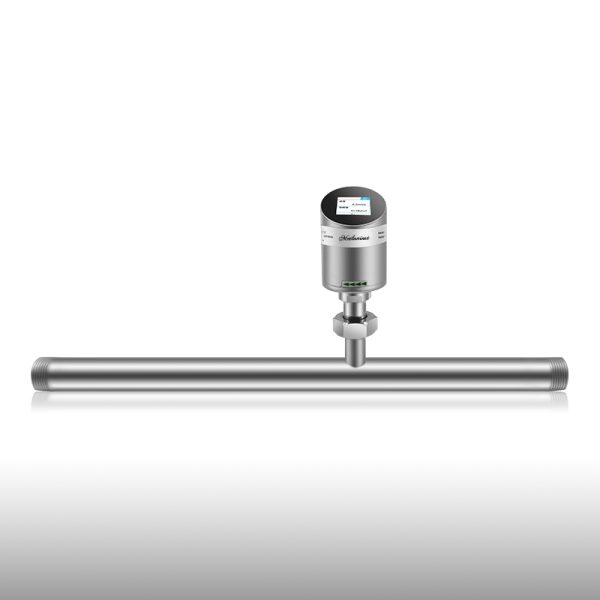
Thermal Mass Flow Meter (MT222x)
- Pipe Size: DN15 to 80
- Ultra-wide 1:2500 turndown ratio
- Eliminates zero point drift and provides highly accurate measurements.
Accuracy
Standard: ±(1.5% RD + 0.3% FS) , Optional: ±1% RD
Measuring Range
0.06 to 2171 Nm³/h
Medium Temperature Range
-40 to 302°F (-40 to 150°C)
Max. Process Pressure
63 bar (913.74 psi)
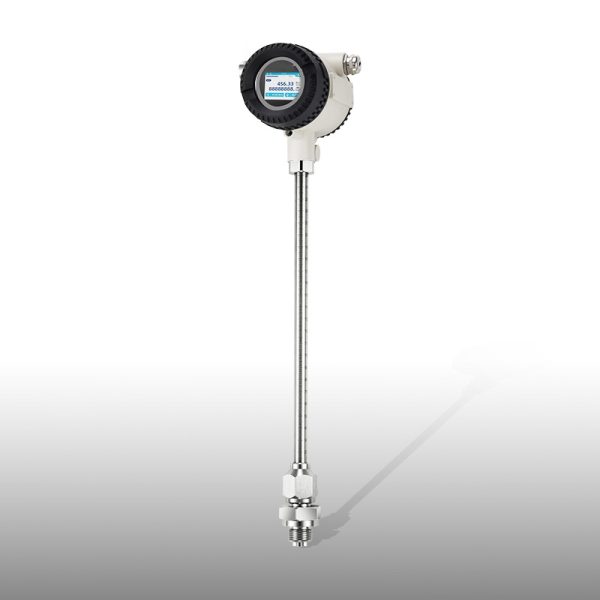
Insertion Explosion-proof Thermal Mass Flow Meter (MT211x-Ex)
- DN 20 to 300 (3/4″ to 12″)
- The measuring range is from 0.1 Nm/s to 250 Nm/s.
- Explosion-proof class: Ex db IIC T6 Gb / Ex tb IIIC T80°CDb.
Accuracy
Standard: ±(1.5% RD + 0.3% FS) , Optional: ±1% RD
Measuring Range
0.1 to 63617 Nm³/h
Medium Temperature Range
-40 to 176°F (-40 to 80°C)
Max. Process Pressure
63 bar (913.74 psi)
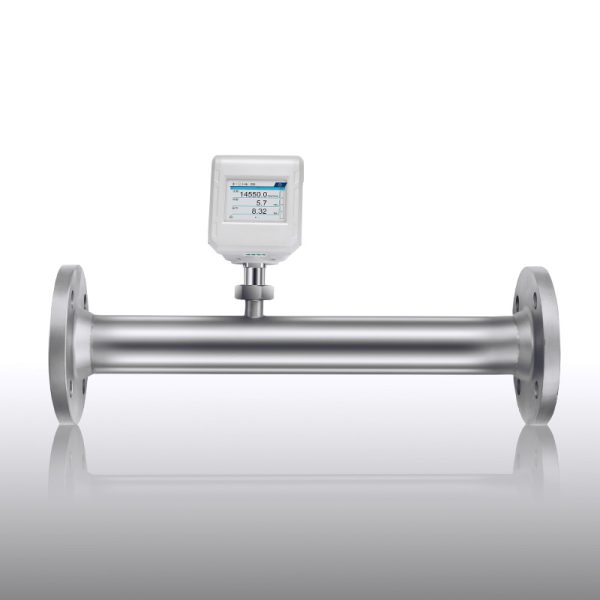
Premium Thermal Mass Flow Meter (MT212x)
- Eliminates zero point drift and provides highly accurate measurements.
- Mobile APP via Bluetooth to view data and do configuration remotely.
Accuracy
Standard: ±(1.5% RD + 0.3% FS) , Optional: ±1% RD
Measuring Range
0.06 to 2171 Nm³/h
Medium Temperature Range
-40 to 302°F (-40 to 150°C)
Max. Process Pressure
63 bar (913.74 psi)
>> More Thermal Mass Flow Meters Here
Suitable Gas Types for Thermal Mass Flow Meter:
Clean, dry gases (e.g., compressed air, nitrogen, argon), corrosive gases (with special coatings), biogas
Advantages of Thermal Mass Flowmeter:
- Direct mass flow measurement (no temperature/pressure compensation required)
- Low pressure loss (suitable for low-pressure gases)
- Fast response (0.5–2 seconds)
- Capable of measuring low flow rates (minimum 0.05 m/s)
- Wide Turndown Ratio
Pitot Tube Gas Flow Meters
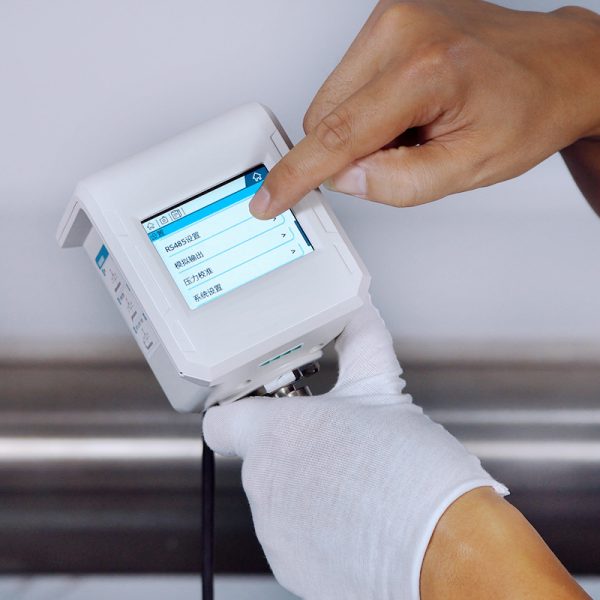
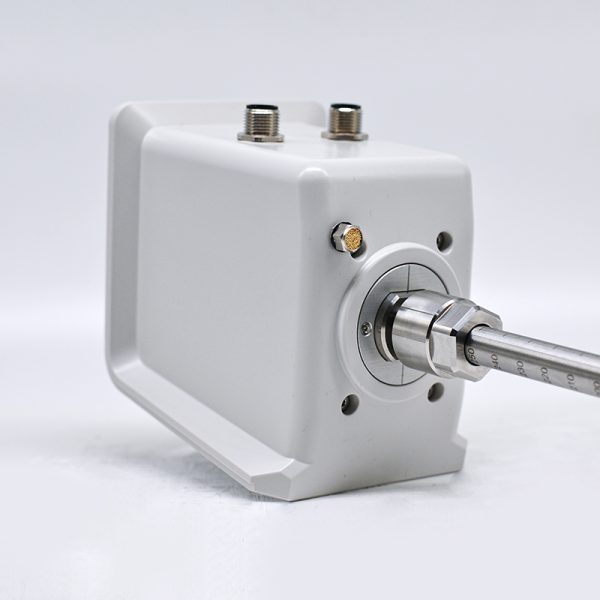
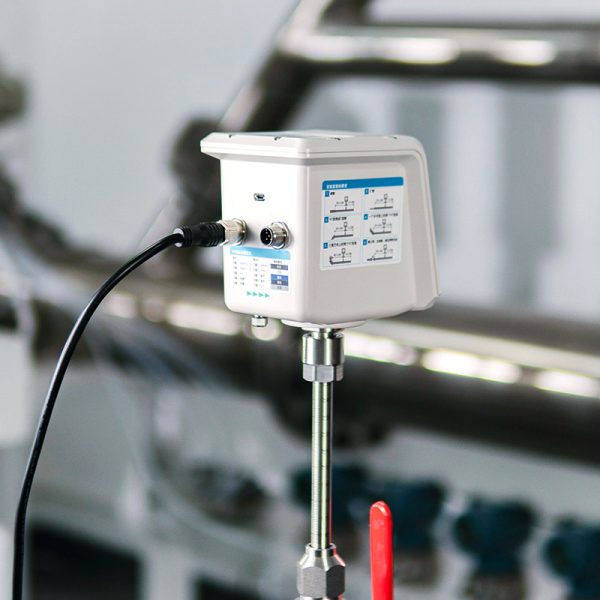
Pitot Tube Gas Flow Meter MTKB-201x
Accuracy
±1% RD; ±1.5% RD + 0.3% FS
Medium Temperature Range
standard: -40 TO 150 °C (–40 to +302 °F)
Max. Process Pressure
17 bar (246.56 psi)
Suitable Gas Types for Pitot Tube Gas Flow Meter:
All non-corrosive gases including wet, dirty, and mixed gases.
Advantages of Pitot Tube Flowmeter:
- Bidirectional flow measurement
- It is not affected by pipeline vibration
- 1:60 wide turndown ratio, and thelower limit is down to 5 Nm/s
Vortex Flow Meters
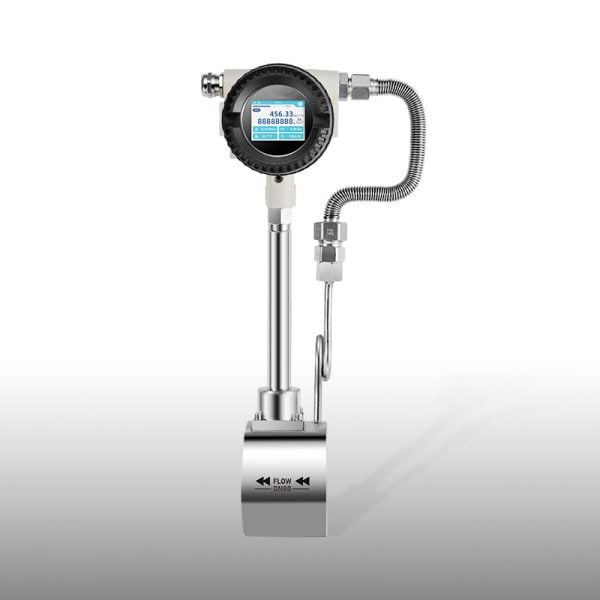
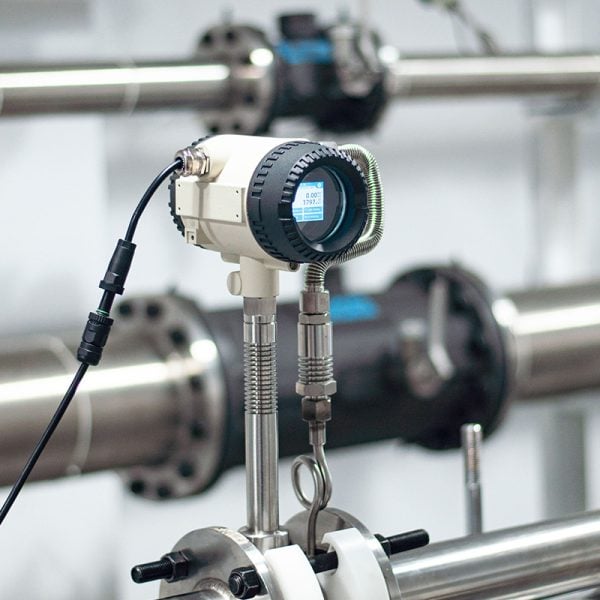
Steam Vortex Flow Meter Anti-vibration (LUGBMT-VS)
Accuracy
Liquid/Gas/Steam: ±1 %
Measuring Range
Steam/Gas: 3.5 to 20347.2 m³/h
Medium Temperature Range
Standard: –40 to +160 °C
High/low temperature (option): –180 to +350 °C
Max. Process Pressure
63 bar (913.74 psi)
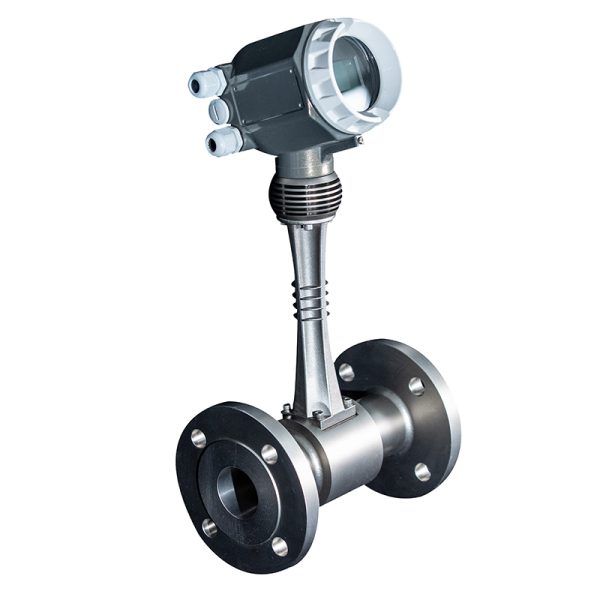
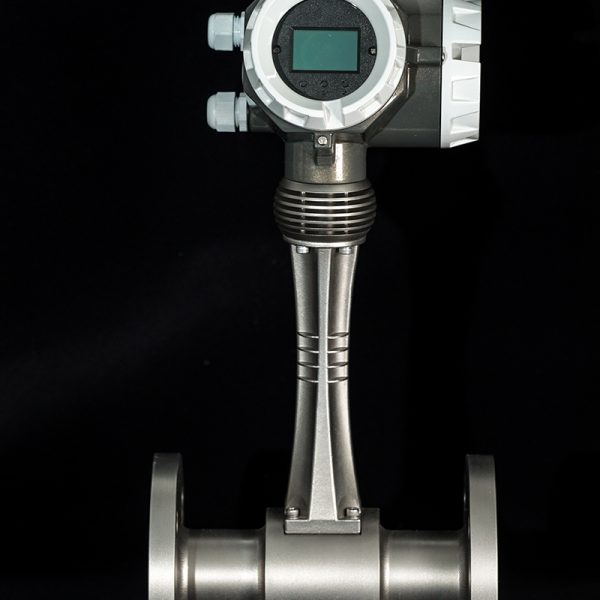
Vortex Flow Meters (LUGBMT-100)
Accuracy
Liquid/Gas/Steam: ±1 %
Measuring Range
Liquid: 0.8 to 3500 m³/h
Steam, gas: 5 to 18000 m³/h
Medium Temperature Range
Standard: –40 to +260 °C (–40 to +480 °F)
High/low temperature (option): –200 to +400 °C (–328 to +750 °F)
Max. Process Pressure
100 bar (1450.38 psi)
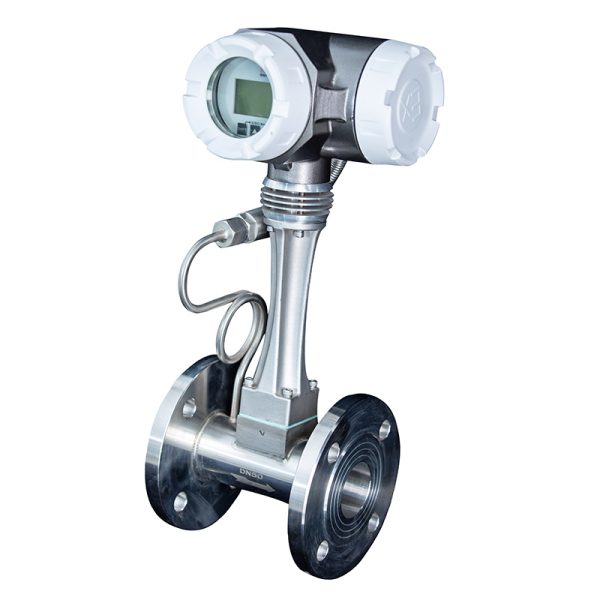
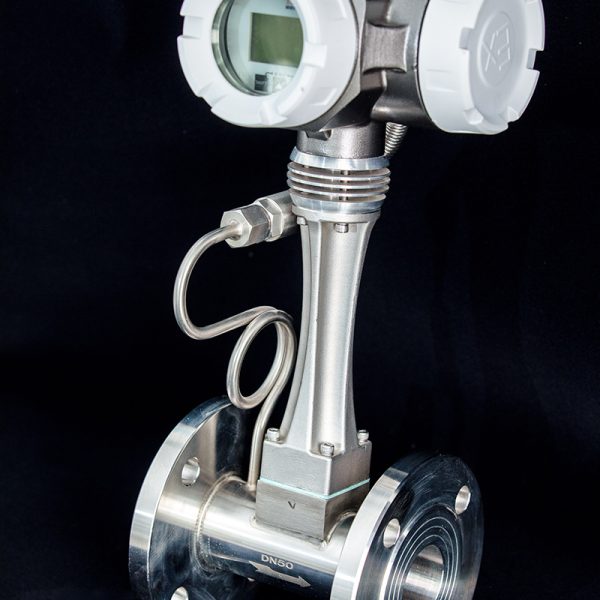
Vortex Flow Meters with Temperature and Pressure Compensation (LUGBMT-C)
Accuracy
Liquid/Gas/Steam: ±1 %
Measuring Range
Liquid: 0.8 to 3500 m³/h
Steam, gas: 5 to 18000 m³/h
Medium Temperature Range
Standard: –40 to +260 °C (–40 to +480 °F)
High/low temperature (option): –200 to +350 °C (–328 to +660 °F)
Max. Process Pressure
100 bar (1450.38 psi)
Check All Vortex Flow Meters
Suitable Gas Types for Vortex Flow Meter:
Steam (saturated/superheated), medium-to-high velocity gases (e.g., process gases, exhaust gases), gases with minor liquid droplets
Advantages of Vortex Flowmeter:
- High-temperature tolerance (up to 400°C)
- High-pressure tolerence (up to 250 bar)
- Can handle partially two-phase flows
Low Flow Mass Flow Meters / Controllers
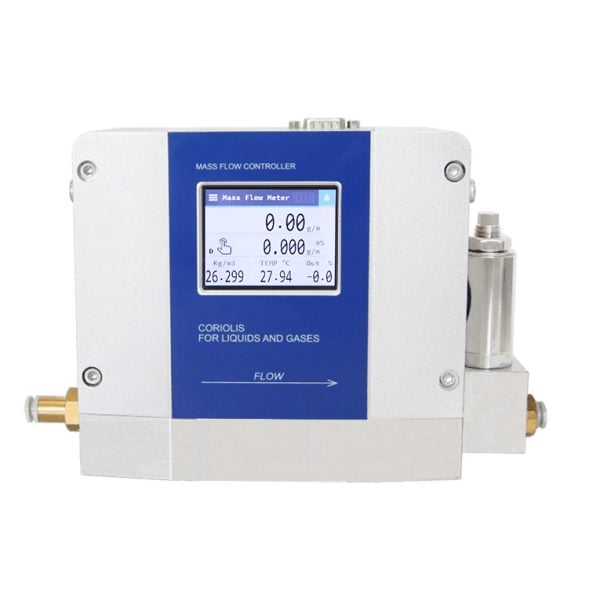
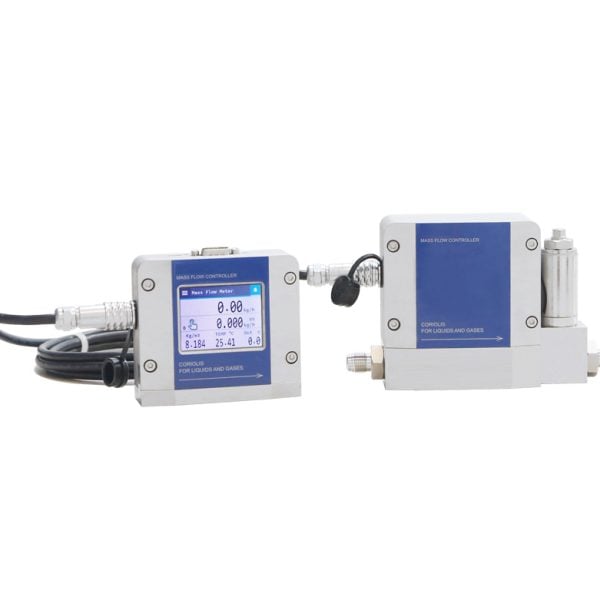
Coriolis Mass Flow Meter / Controller MTL20FE
- Fluid Type: Gas, Liquids
- Turn Down Ratio: 50:1 for mass flow controller; 100:1 for mass flow meter.
- It can measure high viscosity fluid and high density gas.
Accuracy
Gas: ±0.5% F.S; Liquid: ±0.25% F.S
Measuring Range
0 ~ (40g/h~1000kg/h)
Working Temperature Range
0~70℃
Max. Process Pressure
100 bar
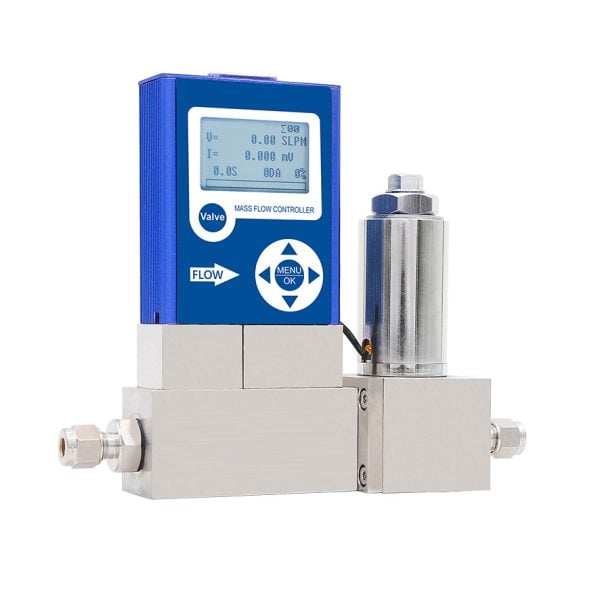
Differential Pressure Mass Flow Meter / Controller MTL20FC
- Fluid Type: Gas, Liquid, Steam
- Simultaneously displaying instantaneous and cumulative flow rate, pressure, and temperature
Accuracy
± 0.5% F.S; ± 1% F.S
Measuring Range
2SCCM~3000SLM
Working Temperature Range
10~50℃
Max. Process Pressure
30 bar
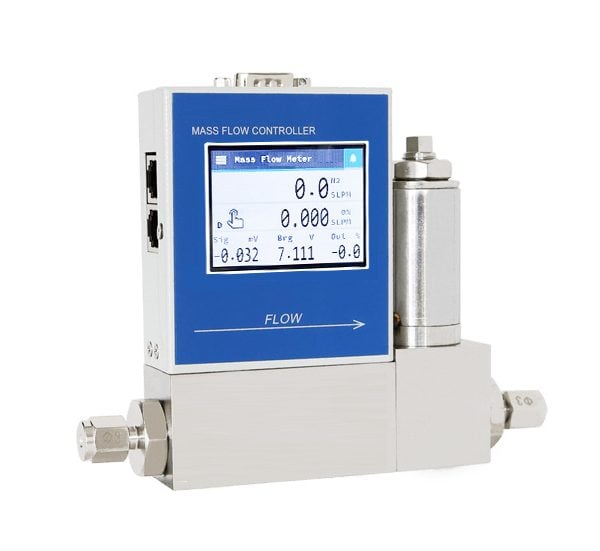
Thermal Gas Mass Flow Meter / Controller (MTL20FD)
- Fluid Type: Gas
- Thermal principle, laboratory level measurement accuracy.
- High stability, tubular shunt to avoid blockage.
Accuracy
± 0.5% F.S; ± 1% F.S
Measuring Range
02SCCM~6000SLM
Working Temperature Range
0~50℃
Max. Process Pressure
100 bar
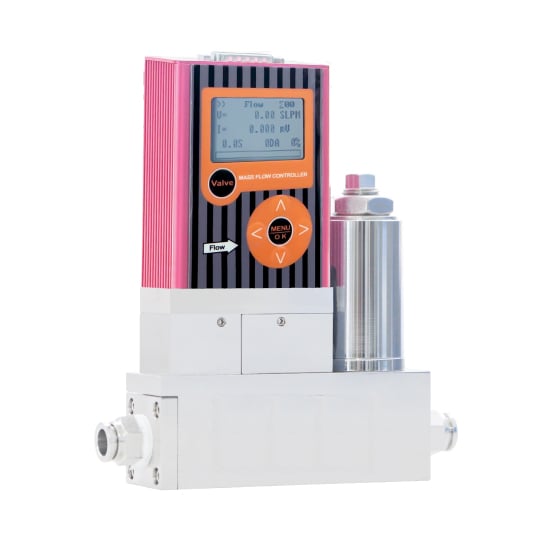
Digital Liquid Mass Flow Meter / Controller MTL10L
- Fluid Type: Liquid
- Enables fast and accurate measurement of volumetric or mass flow rates for liquids.
Accuracy
± 1% F.S
Measuring Range
0~20SLM
Working Temperature Range
10~50℃
Max. Process Pressure
30 bar
Advantages of Mass Flow Controllers:
- Designed for low flow measuring.
- 100:1 turndown ratio for mass flow meter. (50:1 for mass flow controller).
- Response Time: mass flow controller<0.2s; mass flow meter <0.1s
- Wide fluids measurement range
Turbine Gas Flow Meters
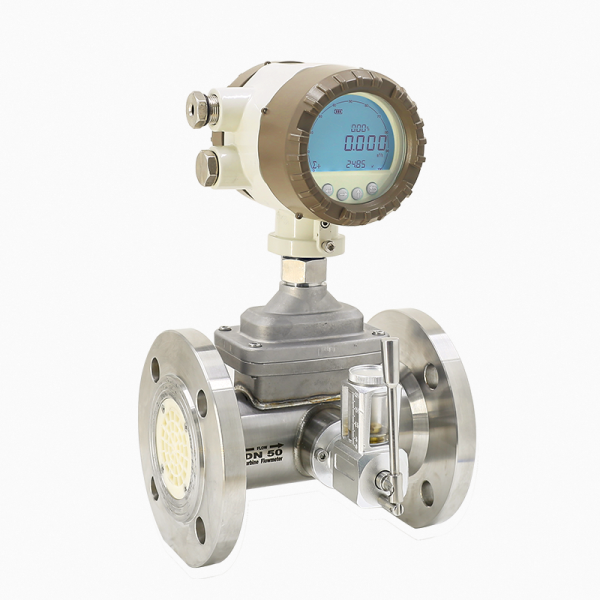
High Accuracy Turbine Gas Flow Meters (LWGYMT-ES)
Accuracy
±1.0%; ±1.5%
Measuring Range
4 to 13000 m³/h
Medium Temperature Range
standard: -25°C~+55°C (–13 to +131 °F)
Max. Process Pressure
63 bar (913.74 psi)
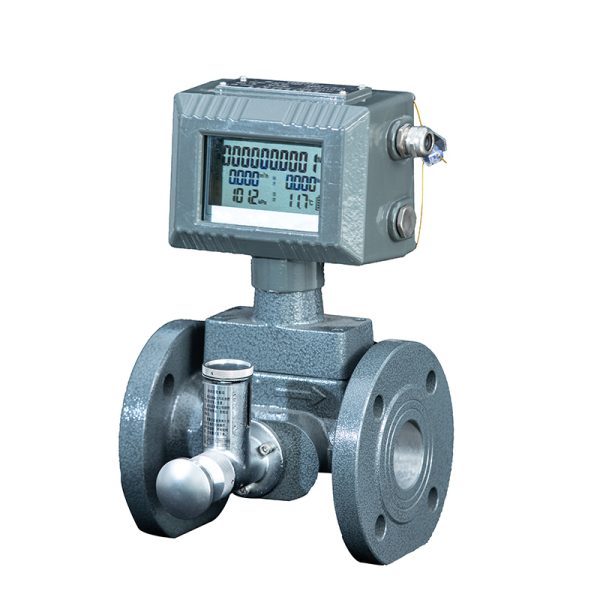
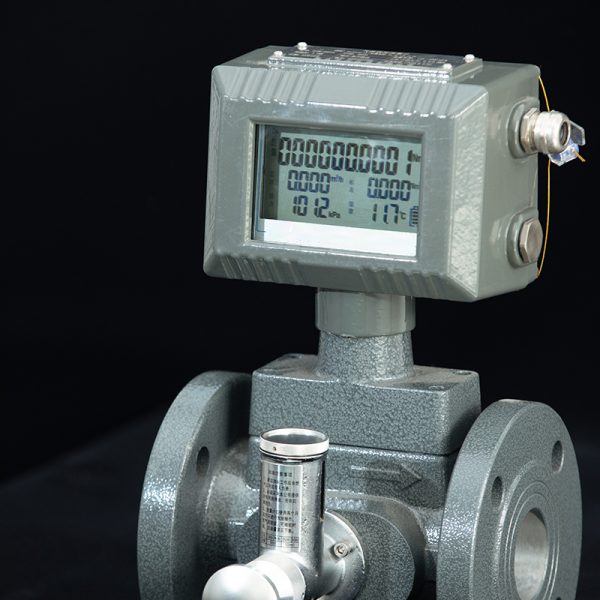
Gas Turbine Flow Meters\ (LWGYMT-G)
Accuracy
±1.5 %
Measuring Range
2 to 1000 m³/h
Medium Temperature Range
standard: -20 TO 120 °C (–4 to +248 °F)
Max. Process Pressure
63 bar (913.74 psi)
Suitable Gas Types for Turbine Flow Meter:
Non-corrosive gaseous media with medium to low flow rates, such as natural gas, propane, butane, carbon dioxide, and nitrogen.
Advantages of Turbine Flowmeter:
- Suitable for high-pressure systems.
- Cost-effective for large-diameter pipelines.
Coriolis Mass Flow Meters
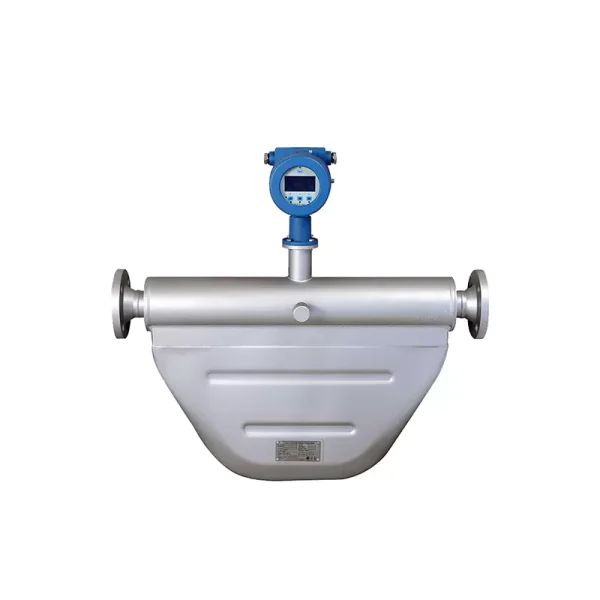
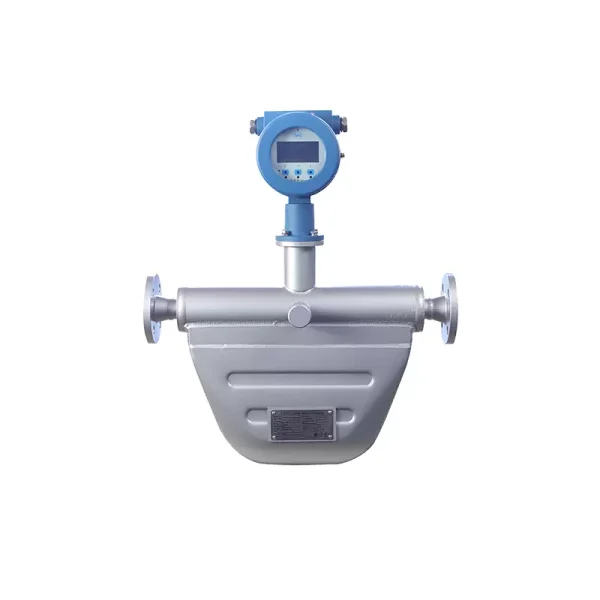
Coriolis Mass Flow Meter W Shape (MTD-ACMW)
Accuracy
±0.1 %; ±0.15 %; ±0.2 %; ±0.5 %
Measuring Range
8-1500000 kg/h (17 – 3306930 lb/h)
Medium Temperature Range
Integrate Type: (-50~+125)℃
Split Type: (-200~+350)℃
Max. Process Pressure
250 bar (3626 psi)
Measuring tube
Austenitic stainless steel (316/316L), and others on request
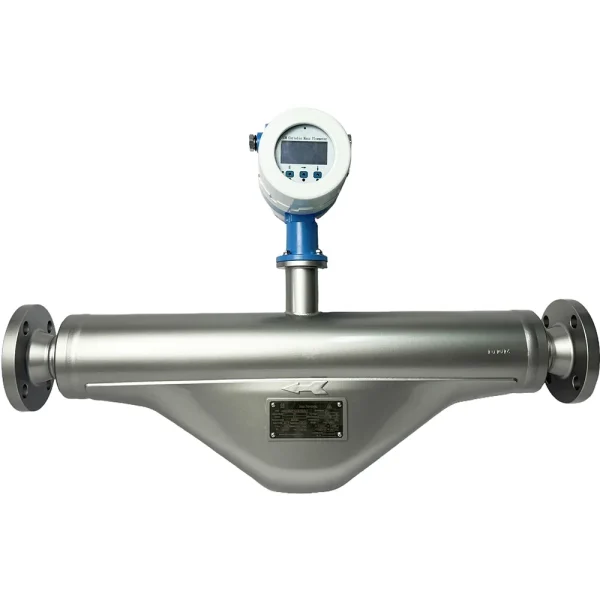
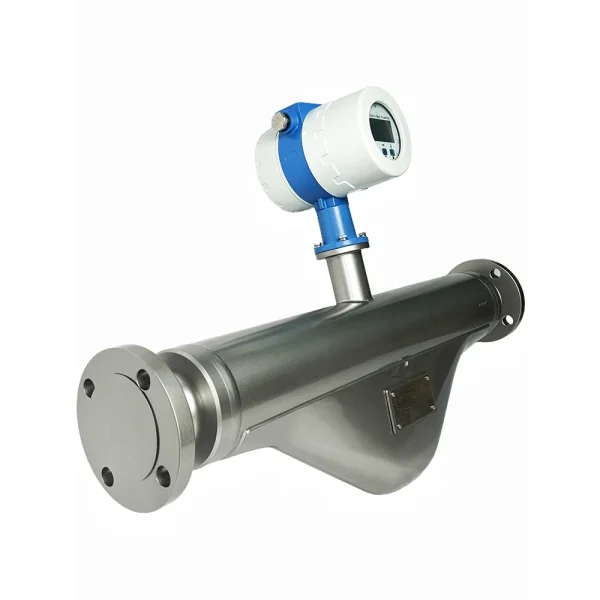
Coriolis Mass Flow Meter C Shape (MTD-ACMC)
Accuracy
±0.1 %; ±0.15 %; ±0.2 %; ±0.5 %
Measuring Range
500-200000 kg/h (1100-440900 lb/h)
Medium Temperature Range
Integrate Type: (-50~+125)℃
Split Type: (-200~+350)℃
Max. Process Pressure
250 bar (3626 psi)
Measuring tube
Austenitic stainless steel (316/316L), and others on request
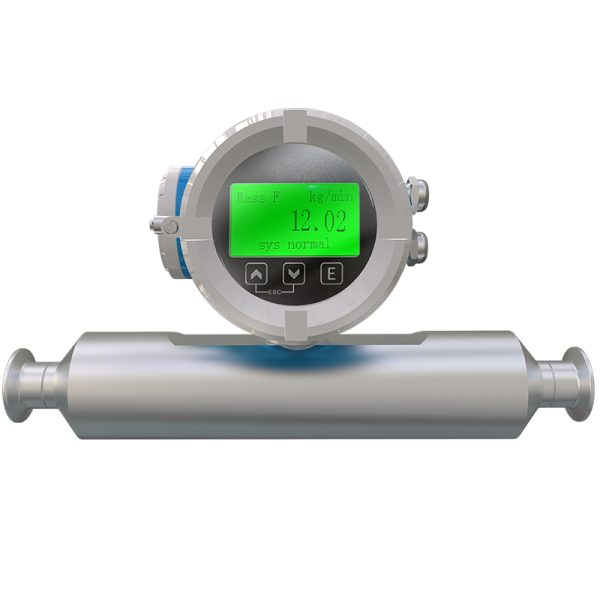
Coriolis Mass Flow Meters for Advanced Process Applications (MASS-A)
Accuracy
Standard: ±0.5 %, Optional: ±0.2 %; ±0.15 %
Measuring Range
0-30000 kg/min (0-66138 lb/min)
Medium Temperature Range
-40 to 185°F (-40 to 85°C)
Max. Process Pressure
100 bar (1450.38 psi)
Measuring tube
Austenitic stainless steel (316L), Hastelloy C, and others on request
Suitable Gas Types for Coriolis Flow Meter:
High-value gas measurement (LNG, ethylene), process gases with bubbles, non-Newtonian fluid gases
Advantages of Coriolis Mass Flowmeter:
- Direct mass measurement with highest accuracy (±0.1%)
- Suitable for multi-phase flows (gas-liquid mixtures)
- Unaffected by fluid properties
Ultrasonic Gas Flow Meters
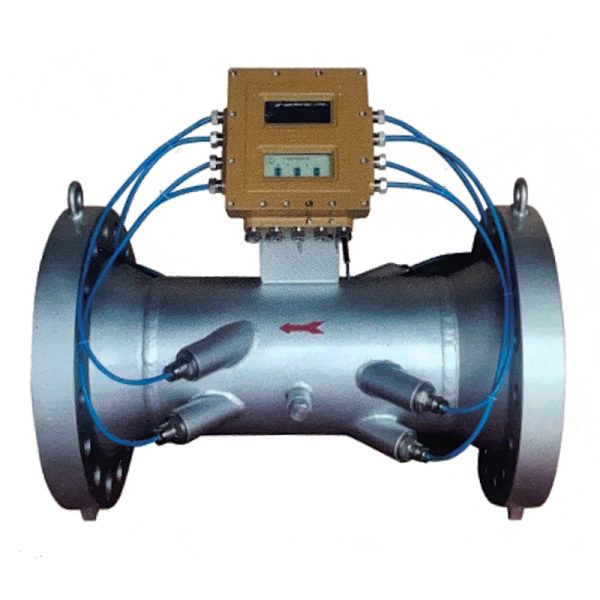
High Precision Ultrasonic Gas Flow Meter (MTS-LYNSB)
Accuracy
±0.5%; ±1%; ±1.5%
Measuring Range
1 to 11000 m³/h
Medium Temperature Range
≤65 °C (149 °F)
Max. Process Pressure
420bar (6090psig)
Suitable Gas Types for Ultrasonic Flow Meter:
Natural gas, flue gas, flare gas, high-humidity gases (≤5% liquid droplets), dusty gases (dust concentration <50 g/m³)
Advantages of Coriolis Mass Flowmeter:
- No pressure loss (ideal for large pipelines)
- Bidirectional measurement
- High turndown ratio
- Tolerates dirty media
How to Choose the Right Gas Flow Meter
Choosing the right gas flow meter depends on several factors:
- Type of Gas: Determine whether the gas is clean, corrosive, or contains particulates.
- Flow Rate Range: Ensure the flow meter can handle the expected flow range.
- Accuracy Requirements: Select a flow meter that meets the precision needed for the application.
- Operating Conditions: Consider temperature, pressure, and environmental factors.
- Installation Constraints: Decide whether a non-intrusive or inline meter is more practical.
- Budget: Balance cost with performance and maintenance requirements.
